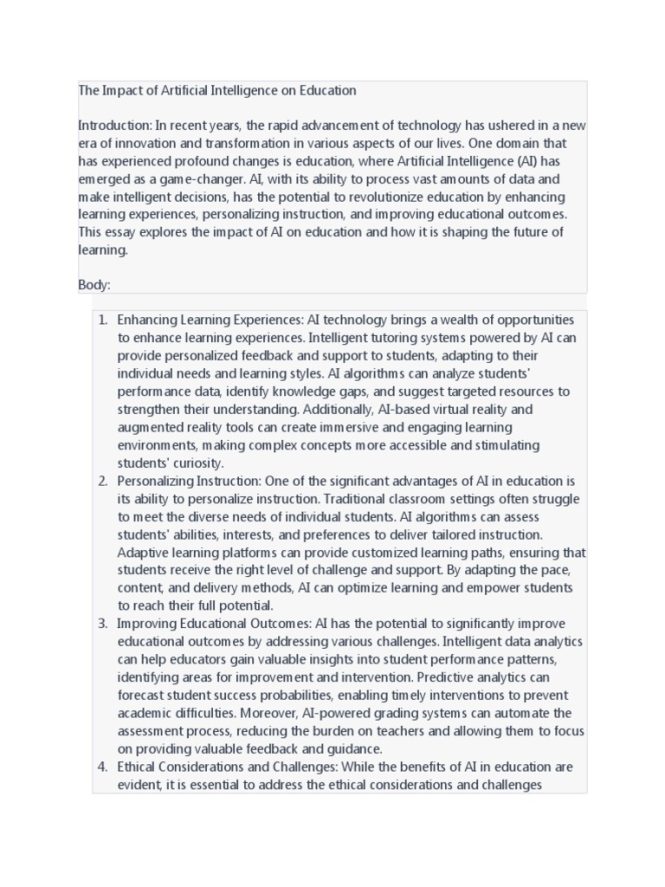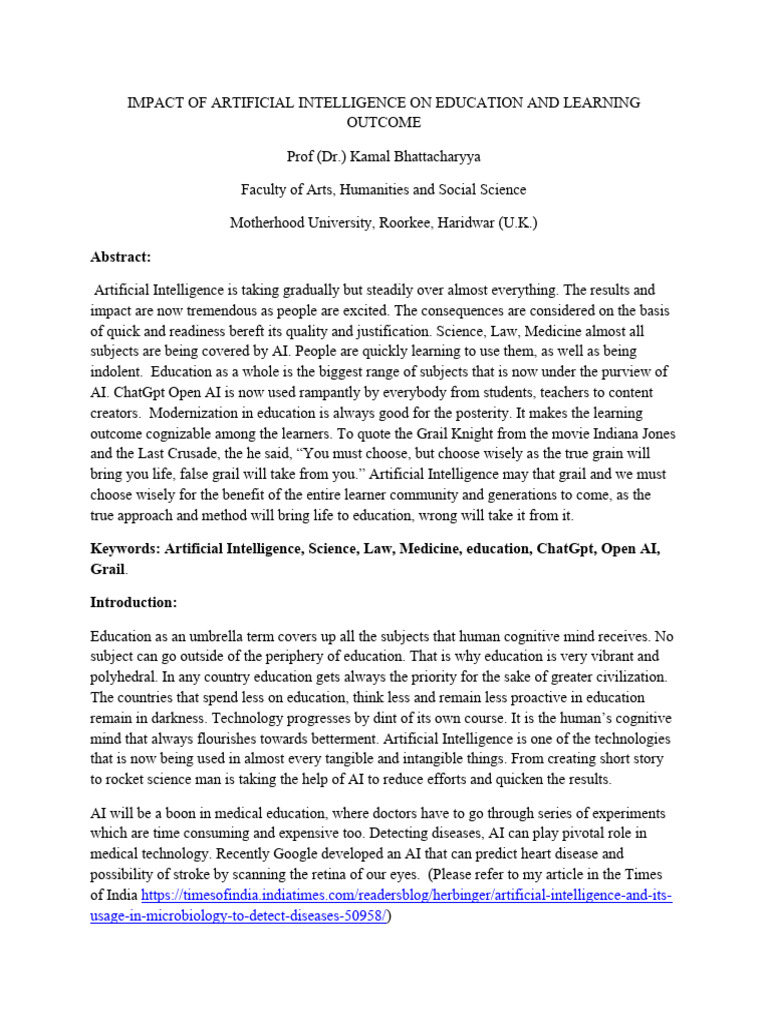

Artificial intelligence (AI) is rapidly transforming educational contexts, offering innovative approaches to enhance learning, personalize instruction, and improve overall student success. Imagine a classroom where every student receives tailored instruction, where teachers have access to powerful data analysis tools, and where administrative tasks are streamlined, all thanks to AI. This transformation is already underway, and this article will delve into the multifaceted impact of artificial intelligence in educational contexts. This article will explore the transformative potential of AI in education, highlighting potential benefits, challenges, and practical applications. We’ll cover diverse AI-driven educational solutions and touch on essential considerations for ethical and responsible implementation.
The Transformative Potential of AI in Education
Personalized Learning Experiences
AI algorithms can analyze student data to identify learning styles, strengths, and weaknesses, enabling educators to tailor instruction accordingly. For example, adaptive learning platforms can adjust the difficulty and pacing of lessons based on individual student performance, creating a more effective learning environment. A significant benefit of personalized learning is the potential to cater to diverse learning styles and needs, fostering a more inclusive learning experience.
Enhanced Teacher Effectiveness
AI tools can assist teachers by automating administrative tasks, grading assignments, and providing personalized feedback. This allows teachers to focus more on individual student interactions and fostering a supportive learning environment. For instance, AI-powered tools can analyze student responses to questions in real-time, providing teachers with insights into understanding gaps and adjusting instruction accordingly.
Optimizing Administrative Tasks
AI can automate administrative tasks such as scheduling, record-keeping, and communication with parents. Automating these tasks can save teachers considerable time and resources, allowing them to focus more on teaching and interacting with students. For example, AI can automatically generate personalized reports about student progress, eliminating the need for manual data entry.
AI-Driven Educational Tools
Adaptive Learning Platforms
Adaptive learning platforms use AI to personalize learning experiences for students. These platforms can adjust the difficulty and pacing of lessons based on individual student performance, creating a more engaging and effective learning environment. A considerable benefit of adaptive learning is its potential to address the diverse learning needs of students, fostering an inclusive learning environment.
AI-Powered Assessment Tools
AI can automate and enhance assessment processes by providing more detailed feedback on student work and identifying areas for improvement. This can help teachers and educators better understand student comprehension and adjust their teaching strategies accordingly. For example, AI-powered tools can evaluate essays for grammar, style, and overall coherence.
Ethical and Societal Implications
Data Privacy and Security
AI systems in education rely on student data, necessitating robust data privacy and security measures. It’s essential to ensure that student data is handled ethically and securely. Educational institutions must implement strict protocols to safeguard sensitive information and adhere to privacy regulations.
Equity and Access
Ensuring equitable access to AI-driven educational tools for all students is paramount. Cost and technological infrastructure disparities can create barriers to access, impacting educational equity. Schools must address infrastructure and financial constraints to ensure equitable access for all students.
Case Studies and Real-World Examples
Example 1: Personalized Learning with Khan Academy
Khan Academy’s adaptive learning platform utilizes AI algorithms to provide personalized learning paths based on student performance. Data analysis reveals students who use the platform demonstrate improved learning outcomes.
Example 2: AI-powered Assessment in Higher Education
Many higher education institutions are now utilizing AI-powered tools to evaluate student essays, ensuring objective and consistent feedback.
Conclusion
The Future of Education
AI-Powered Collaboration
AI can facilitate collaboration among students by providing tools that help with group projects and shared learning experiences. AI tools that connect students across geographical boundaries can broaden learning experiences.
Frequently Asked Questions
Q1: What is the impact of AI on teacher roles in educational contexts?
AI is not intended to replace teachers but rather to empower them with new tools and resources to enhance their teaching strategies. By automating administrative tasks and providing data-driven insights, AI can free up valuable time for teachers to focus on fostering meaningful student-teacher interactions and addressing individual learning needs. Teachers can utilize the information generated by AI-powered tools to better understand their students’ strengths and weaknesses and adjust their teaching methods accordingly.
Q2: Are there potential risks or challenges associated with the implementation of AI in education?
One concern about implementing AI in education is the potential for algorithmic bias. AI systems are trained on data, and if the data reflects existing societal biases, the system may perpetuate these biases. To mitigate this risk, it’s crucial to ensure that the data used to train AI models is diverse and representative of the student population. Another challenge is ensuring equitable access to AI-driven educational tools for all students. Cost and technological infrastructure disparities can create barriers to access, impacting educational equity. Schools must actively work to address these challenges.
In conclusion, artificial intelligence (AI) offers tremendous potential to reshape educational contexts, fostering personalized learning, enhancing teacher effectiveness, and optimizing administrative tasks. By embracing AI-powered tools responsibly and ethically, educators can unlock a more engaging and effective learning experience for all students. Further research and development in this area are vital to fully realize the transformative potential of AI in education. Educators should prioritize continuous learning and professional development to integrate AI tools effectively into their teaching practices. To learn more about the practical implementation of AI in your educational setting, explore resources for integrating AI-driven technologies, attend workshops, and connect with educational institutions actively exploring AI in education.